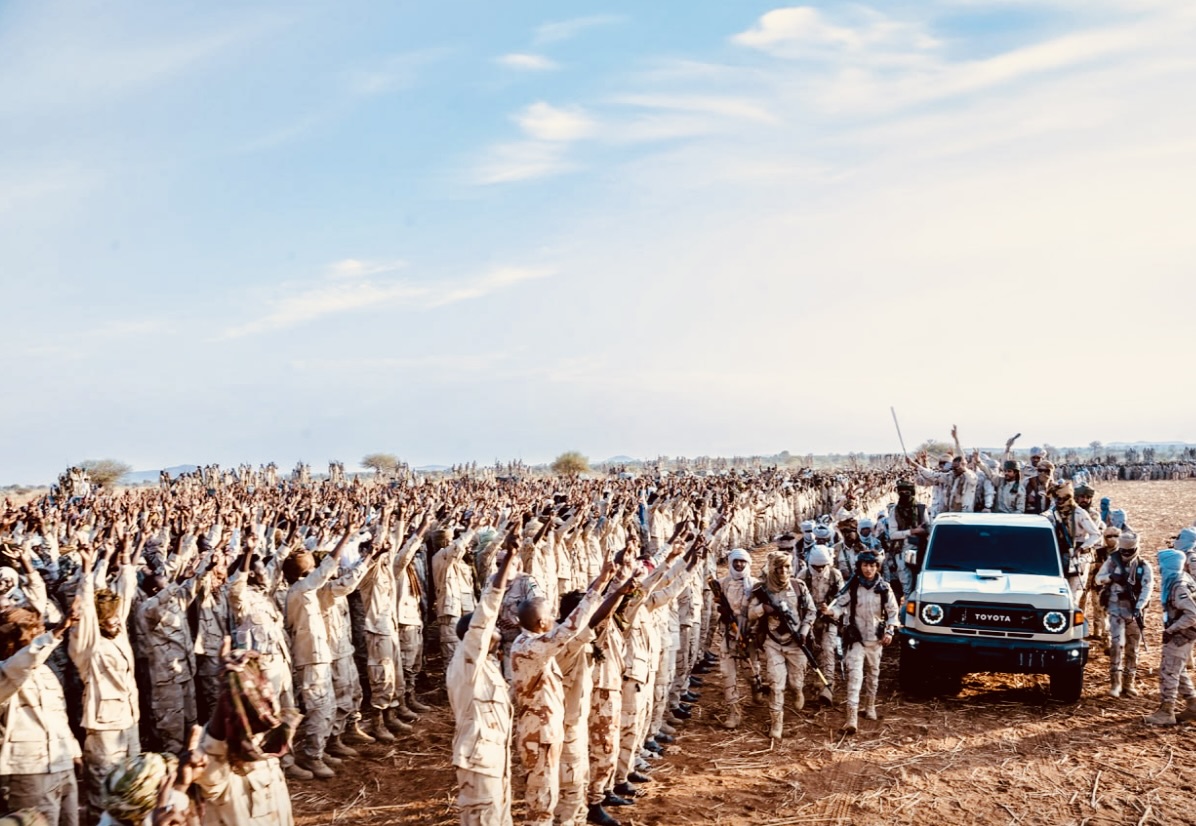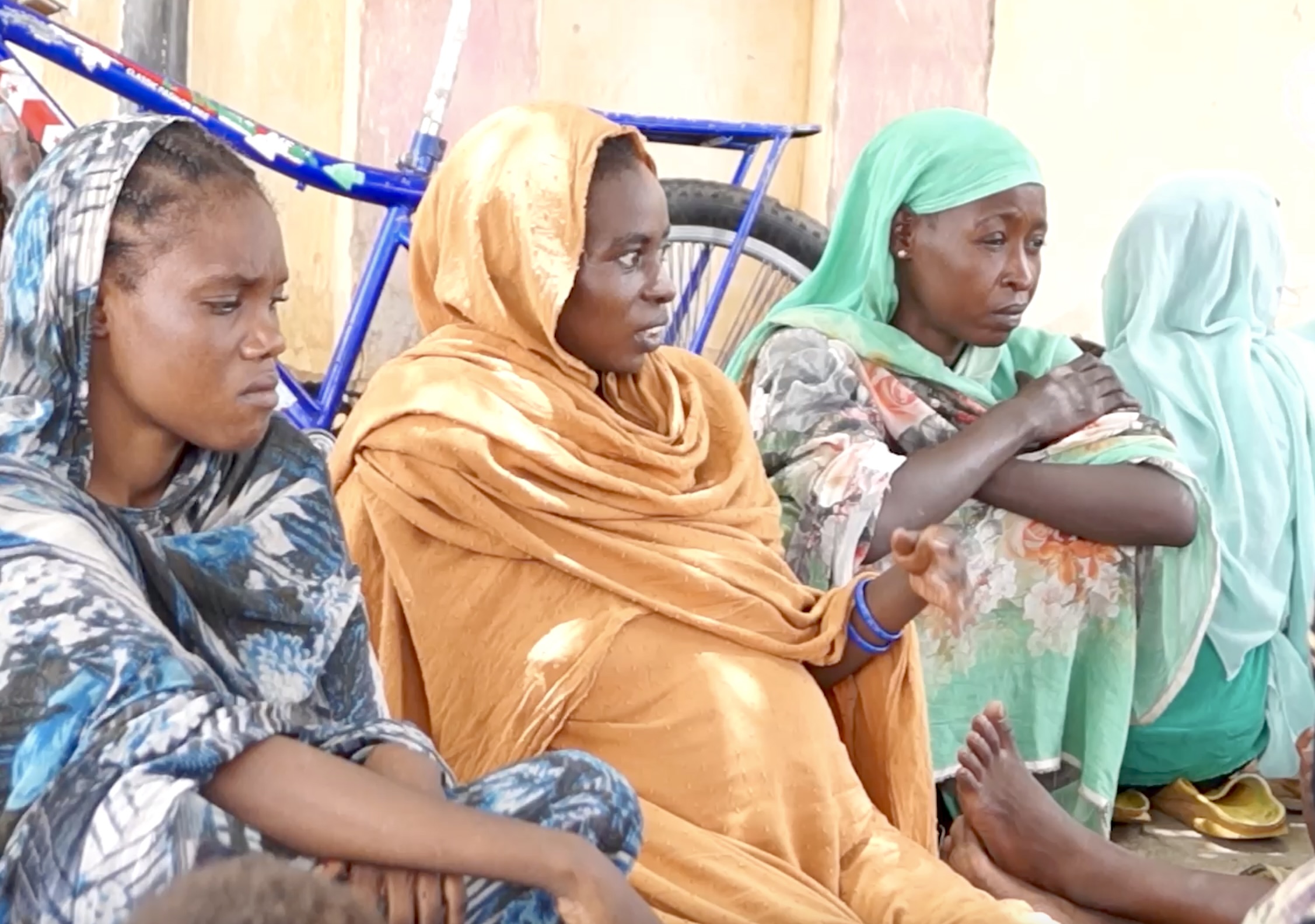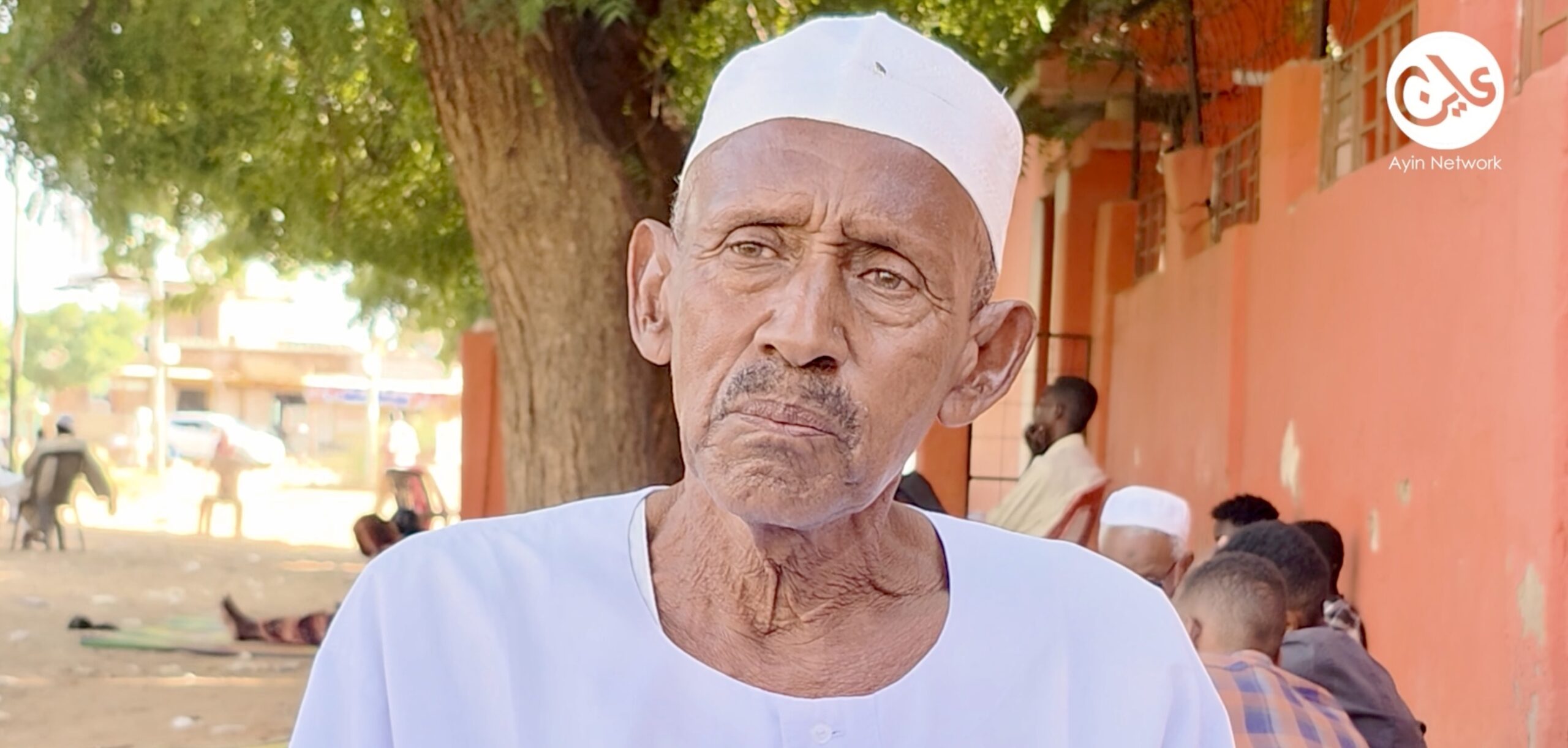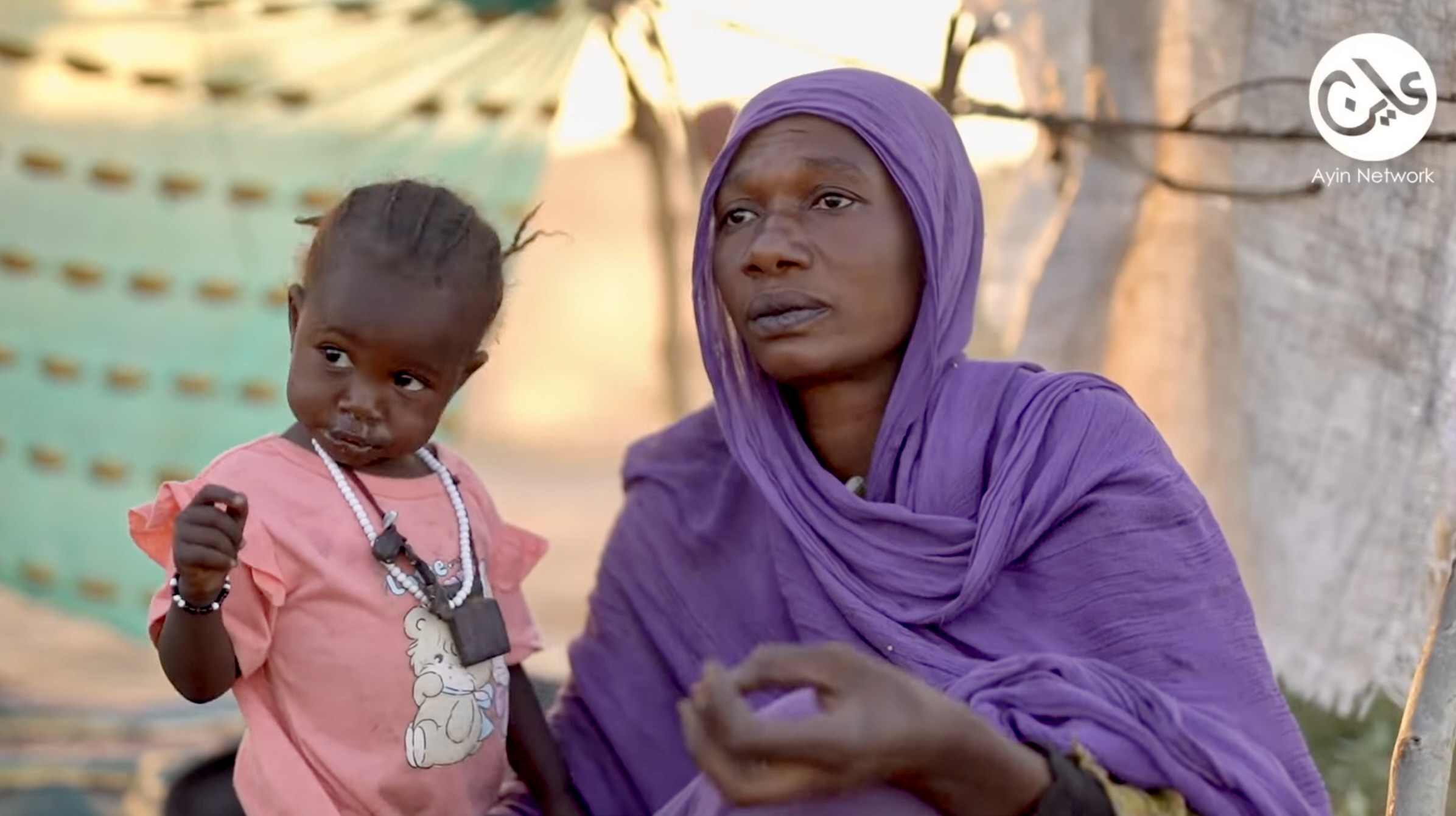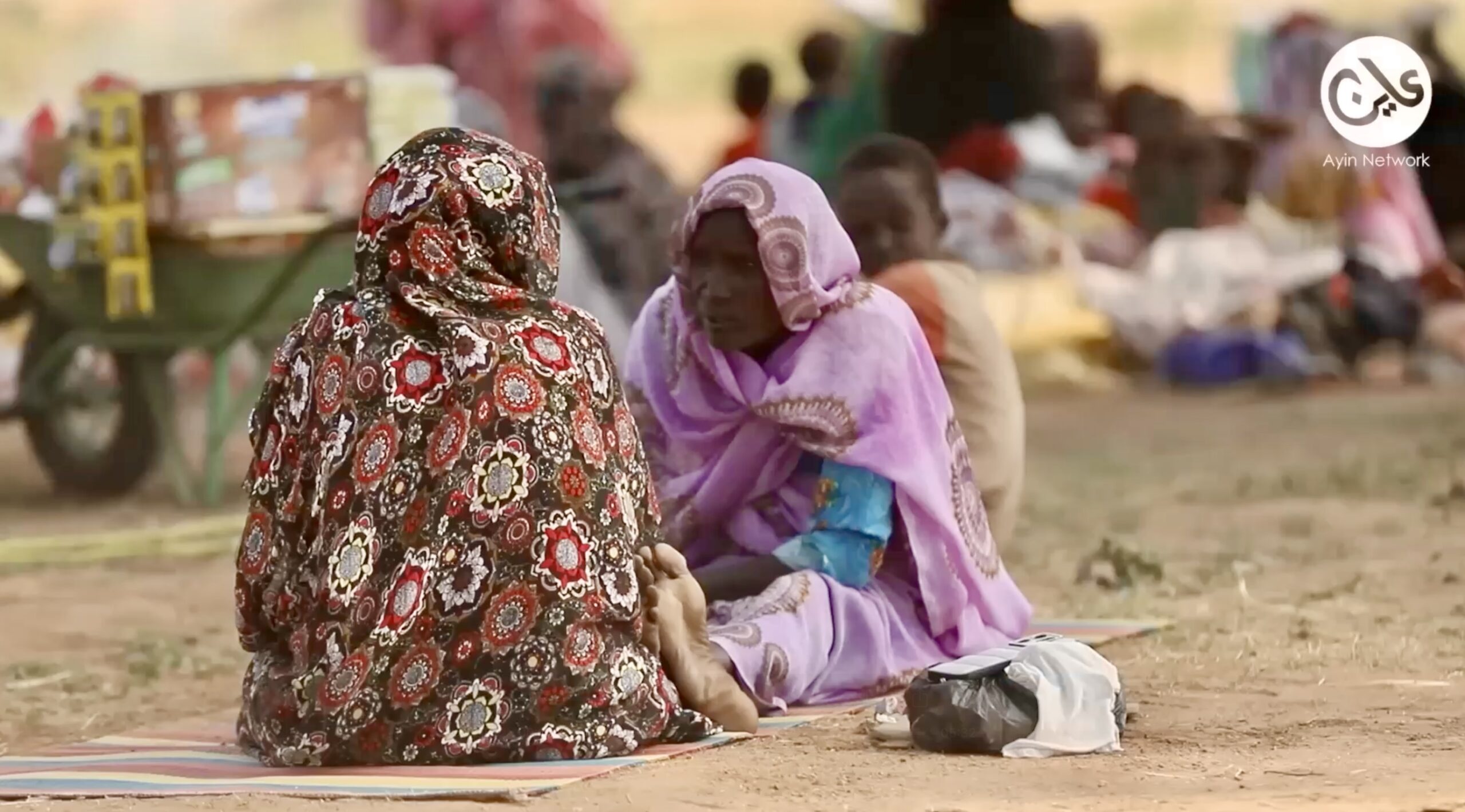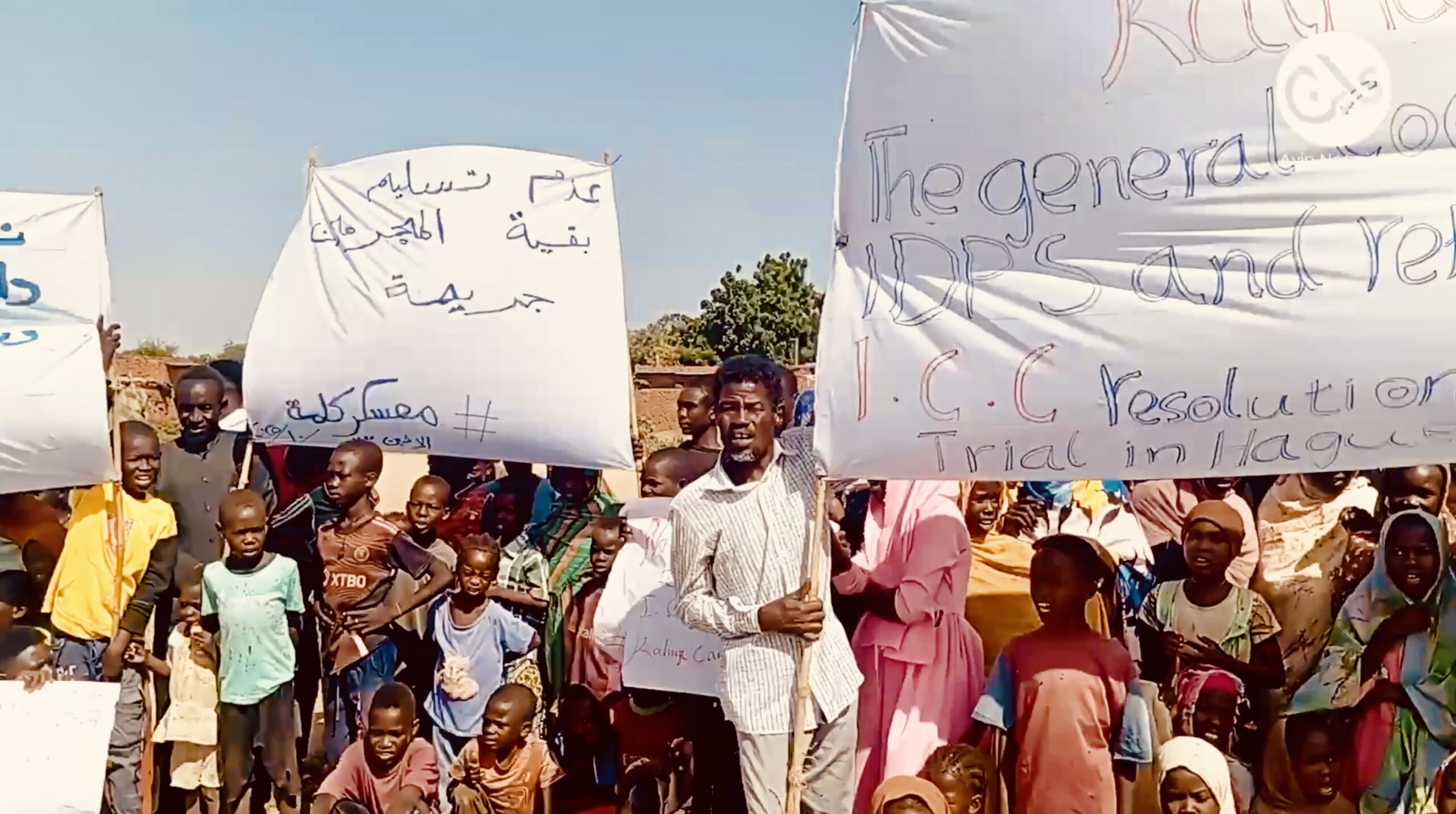Rapid Support Forces resort to forced recruitment campaigns
26 June 2025
After the Rapid Support Forces lost control of central Sudan, including Khartoum, the forces’ leadership launched a broad mobilisation effort to recruit fighters in the Darfur states. This operation was accompanied by widespread civilian infractions, some of whom called the recruitment activities “forced,” as civil society groups rejected their sons’ engagement in conflict.
While some Rapid Support Forces (RSF) soldiers have fallen in battle, others have left the frontlines and now engage in commercial activities, said one RSF source speaking anonymously to Ayin.
Last May, the civilian administrations affiliated with the Rapid Support Forces in the areas under their control issued emergency and general alert orders in the states of Darfur and West Kordofan. The decisions covered all segments of society, accompanied by strict directives requiring youth, commercial, and civil society sectors to participate in the ongoing military efforts. The civilian administrations justified the decisions as a response to escalating security challenges and preserving national security, warning anyone who refused or objected to the implementation of mobilisation orders.
Concurrent with the mobilisation and alert operations, the RSF launched a widespread arrest campaign in South and East Darfur states, local sources in both states told Ayin, targeting members of the Islamic Movement, as well as military personnel in the police, army, and security forces who refused to work with the forces. The forces gave them the choice between joining the ranks or facing imprisonment.
Hundreds of young men fled the city of El Daein after the Rapid Support Forces gave them three options: join the fighting, pay large sums of money, or remain in prison.
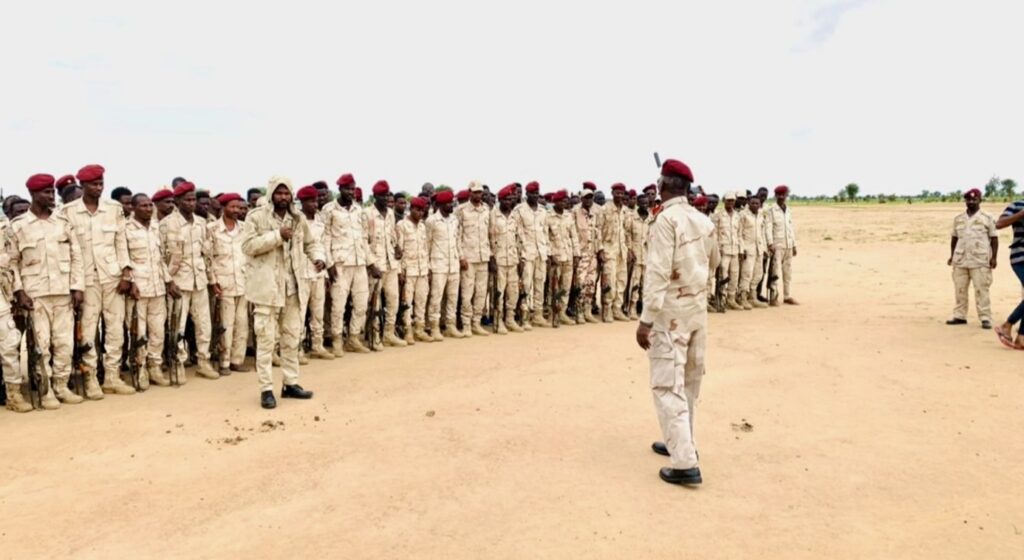
Forced recruitment
Khamis Ali Adam, a resident of the northern neighbourhoods of Al Daein, revealed that hundreds of young people, merchants, and volunteer leaders fled Al Daein and the localities after a list of the names of those on call for recruitment was leaked. Khamis explained that the choices were complex for them, as they were forced to leave their homes and families under difficult living and security conditions.
Earlier this month, the Sudanese Doctors Network announced that the RSF had arrested approximately 178 people, including medical personnel, in El Daein, the capital of East Darfur state.
In a similar vein, a doctor in South Darfur reported that the mobilization campaigns were primarily directed at doctors and medical personnel, forcing them to either participate or pay large bribes to be left alone. One doctor, who requested anonymity, explained to Ayin that he had tried several times to leave the Darfur region but had been unsuccessful, forcing him to continue working, especially after the RSF increased their surveillance of border crossings.
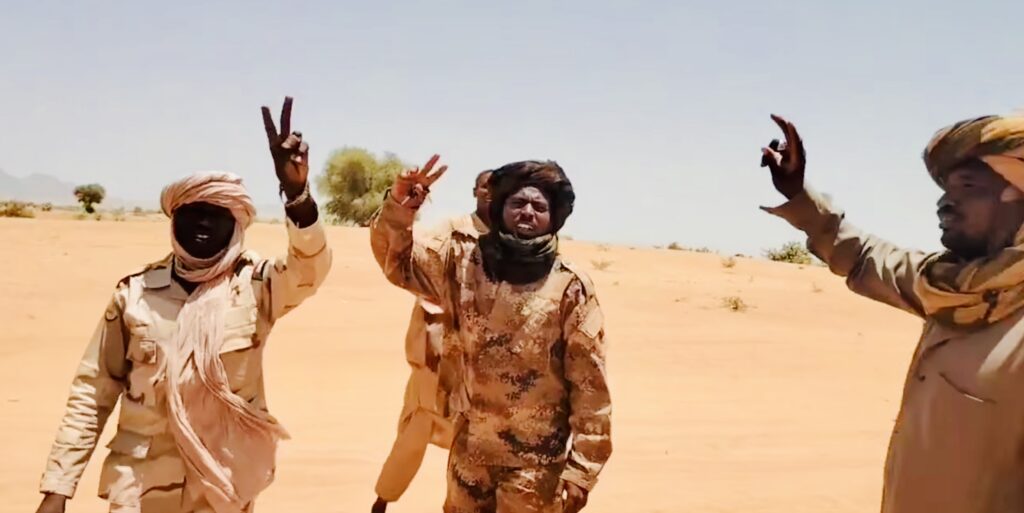
“War taxes”
Surveys conducted by Ayin with community leaders in three Darfur towns revealed that the mobilisation campaigns stretched from South, West, and Central Darfur states, as well as West Kordofan State. These entities were required to provide financial support and pay a so-called war tax in exchange for protecting their property. Meanwhile local administrations are required to provide fighters to ensure their loyalty to the Rapid Support Forces.
“The mobilisation and alert operations carried out by the Rapid Support Forces have placed indigenous leaders and local communities in an extremely difficult position, especially since the indigenous administration is responsible for assembling fighters and, at the same time, collecting funds,” a civil society leader in South Darfur State who preferred to remain anonymous told Ayin.
But few civil society actors can speak out against the RSF, the same source said, fearing they may face a similar fate to those accused of supporting the army in Al-Maliha, Al-Nahud, and Umm Kadada.
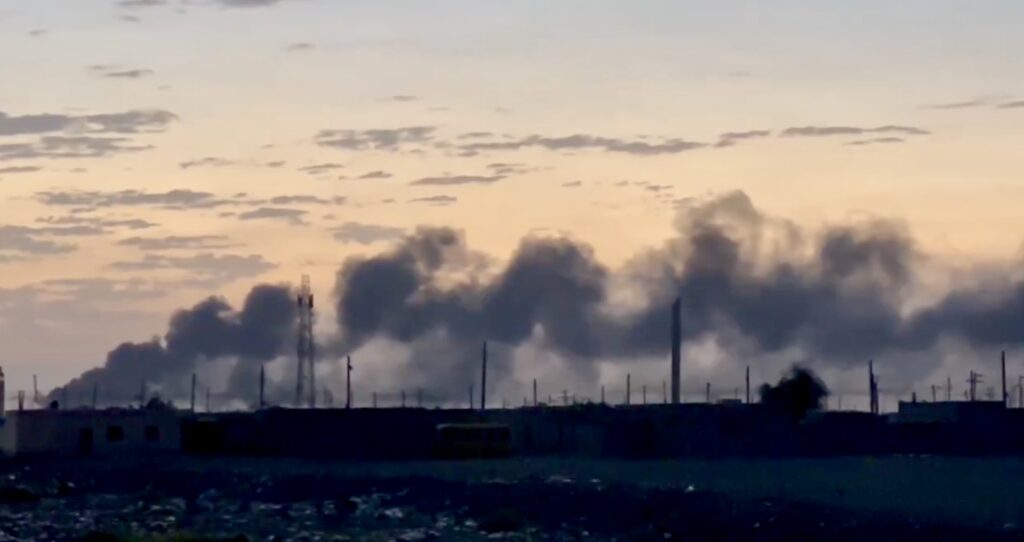
“The last resort”
The Rapid Support Forces’ move toward forced recruitments reveals a crisis within its ranks, says military expert Mohamed Ali Idam. RSF forces were severely depleted after fighting in the capital, Mohamed Ali said, and could not afford to provide financial incentives to recruit forces to fill the gap.
“Despite the Rapid Support Forces opening recruitment centers inside and outside the country, they have begun forcefully recruiting citizens, indicating their urgent need for more fighters after the withdrawal of fighters and supporting militias due to the prolonged war,” Idam said.
Political analyst Mahmoud Hassan pointed out that the decision to declare a state of emergency demonstrates the Rapid Support Forces leadership and the political alliance’s understanding of the magnitude of the immediate security threats facing their positions of control in Darfur after they leave the capital, Khartoum. He described this step as “the last resort.”
While the RSF may have reduced their troop numbers, they have countered this deficiency with the use of sophisticated drones, Mahmoud Hassan said. The drone attacks have hit numerous targets in several key locations, particularly Port Sudan, the administrative capital for the army-controlled de-facto government.




